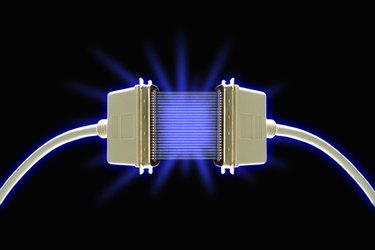
The advent of computers has contributed greatly to the fields of science. They have allowed for the collection and recording of vast amounts of data. They allow scientists to store information indefinitely and review it easily.
History
Video of the Day
The first large scale computer was called "Colossus" and it was used in World War II to crack German wartime codes, an aspect of combinatorics. As of 2010, computers can manipulate data more quickly than most people can imagine. This allows for high-speed recording of data and analysis of results. This is very useful in just about all fields of science.
Video of the Day
Data, Mathematics and Data Detection
Computers interact with science in several specific ways. The first one is dealing with collecting and processing data. This is how the "Colossus" was used. Computers are also used in the field of mathematics. Calculations are done that would take humans more than one lifespan to complete. The computation of the digits of Pi is a good example. Finally, computers can be used as a method of detecting data. Computers can be used to detect events that would easily pass the notice of the human eye. High-speed photography can only be controlled with computer components and is a valuable asset. A computer can sample information billions of times a second, which allows for scientific detection that would otherwise be impossible. A pertinent example is the Large Hadron Collider; without computers and the time-sensitive components involved, it would not be possible to record the data.
Automated Machines
Automated machines are machines that are controlled all or in part by a computer. Computer automation is used mostly by industry in factories. However, it is also useful in science. Machines can be used to run automated tests and complete simple tasks. One example of a machine used in science is the robotic arm that is used to handle radioactive samples. These robotic arms allow the scientist to safely handle and test a highly dangerous sample.
Data Sharing
The Internet, which was developed by scientists in conjunction with the government, has advanced the progress of science in many ways. The first proof of the concept was shown in 1972 and, since then, it has allowed for the vast dissemination of ideas and information. The Internet allows for almost instantaneous sharing of data across any distance. This allows for easier collaboration with colleagues anywhere in the world.
Data Manipulation
Computers allow us to manipulate the data that we gather in easier ways. Most people are accustomed to this aspect of computers through a word processing program. A word processor allows us to manipulate data in the form of words. Without computers, we might still be using typewriters.